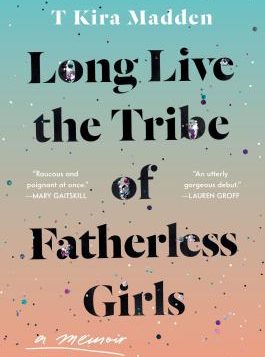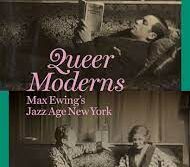 Long Live the Tribe of Fatherless Girls: A Memoir
Long Live the Tribe of Fatherless Girls: A Memoir
by T Kira Madden
Bloomsbury. 311 pages, $27.
BEGINNING a memoir with a mannequin may seem like an odd place to start, but the presence of “Uncle Nuke” is where T Kira Madden opens Long Live the Tribe of Fatherless Girls, a book that takes considerable getting used to in its introduction and opening chapter. The mannequin had been fished out of a pile of department store trash and fetched home by Madden’s mother, an act that, like every other thing her mother did, was carried out with love but also “to protect me.” Her mother had figured that the “fancy, distinguished” faux gentleman might dupe outsiders into thinking she had a male roommate, when the truth was that Madden’s father had two sons and a wife in a nearby Florida neighborhood.
While Madden hints that she was at least a little embarrassed that her mother was her father’s mistress, she nonetheless enjoyed the perks: Her father was a man of means and showered gifts and privileges on his daughter, including lavish vacations, horses, private schools, and the latest toys. Not just for his generosity, Madden adored her father, but she also writes that he was an alcoholic who set up multiple televisions to better focus his attention on sports and gambling until he’d pass out, drunk. What she wanted was to have some of that attention for herself. In order to get it, Madden took steps that seem precocious in retrospect. In elementary school, she devoured teen magazines and began writing to “pen pals,” some of whom were grown men, possibly predators, and some of whom made her uncomfortable. One asked Madden to run away with him, promising a rosy future, and she was all set to go until her mother learned of the scheme. Madden also befriended girls who were far from friendly in their actions, boys who took advantage of her need for approval, and classmates who teased her for her Chinese-Hawaiian-white heritage, her misshapen teeth, and her preteen awkwardness. They also gave her the monikers of “Queera,” “Twinky Chinky,” and later, “Kinky Chinky.” These insults she endured for the sake of belonging, and without informing her parents. By the end of middle school, in fact, in passages that seem rather dispassionately told, Madden writes of her parents’ addictions and frequent absences as they roamed around the world and left her behind. Her most frequent “babysitter” was her “Cousin Cindy,” whom she adored but who was also addicted to drugs and who, much to the family’s chagrin, took a job at a local strip joint. Madden writes of these things in a manner that evokes a quiet, eerily observant child who takes everything in and may or may not be influenced by the adults around her. It was later in this period that she was duped into meeting a boy who seemed to like her but instead brought her to a local mall to be sexually assaulted—part of a long line of experiments with boys that continued until she was sixteen and her parents left her almost completely alone. At that point she partnered with two other girls in skipping school, drinking, and partying. That was also when she began to realize that she liked kissing girls. Not long afterward, in college, she fell in love with a girl. Because a good portion of this book is not quite linear, readers (who should by then be comfortably inured to its sometimes helter-skelter structure) won’t be too surprised to see this tale careen to an abrupt conclusion. What is startling is the introduction of a mystery that we didn’t know about until now, which serves to change the entire tone and storyline of what has already been told. So, while the reader may have been tempted to quit this book once or twice, staying with it comes with an unexpected reward. Terri Schlichenmeyer is a freelance writer based in Wisconsin.





